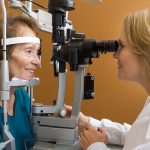
Four out of five pregnant women will become deficient in an essential nutrient, iron, by their third trimester, a new study finds. The researchers and other experts are now advocating that iron levels be routinely checked during a pregnancy for the safety of a mother and her baby. Right now, guidelines from the United States Preventive Services Taskforce (USPSTF), an influential independent panel of medical experts, and the American College of Obstetricians and Gynecologists (ACOG) do not advocate for regular iron checks. However, the new findings suggest that both groups should “change their approach to diagnosis to screen all pregnant women for iron deficiency, irrespective of the presence or absence of anemia, and recommend supplementation when present for the most frequent nutrient deficiency disorder that we encounter,” wrote the authors of an editorial accompanying the new study. The findings were published Sept. 26 in the American Journal of Clinical Nutrition. The new research was led by Dr. Elaine McCarthy, a lecturer in nutrition at the School of Food and Nutritional Sciences at University College Cork, in Ireland. Her team noted that pregnancy brings on a 10-fold surge in uptake of dietary iron to supply the needs of both the fetus and the mom-to-be. A woman’s bodily “iron stores” at the beginning of her pregnancy can help supply much of this needed iron, but McCarthy’s team… read on > read on >





























-300x200.jpg)







-300x169.jpg)
